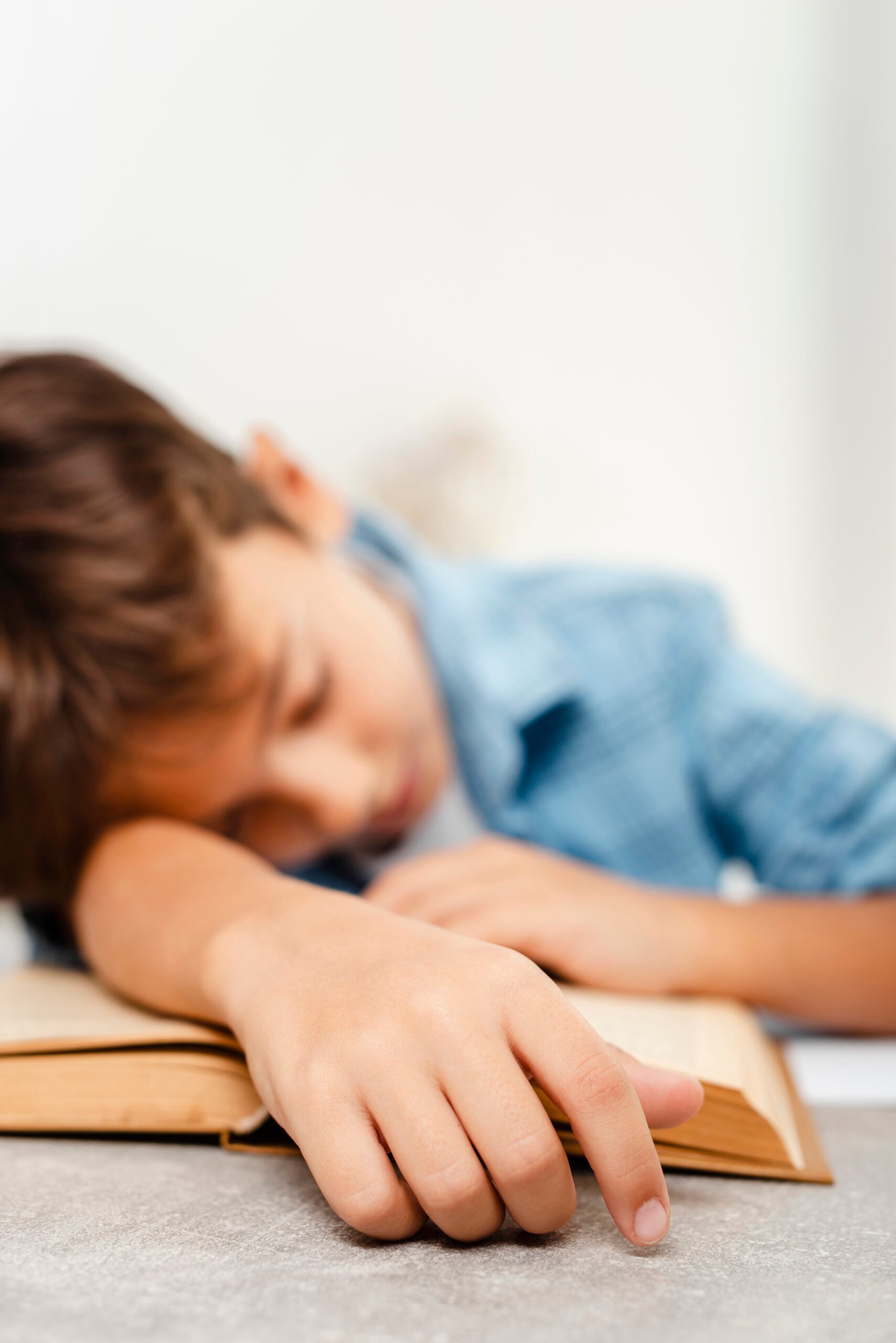The Power of Sleep – Why your child needs a good night’s rest

By Dr Michelle Wright and Dr Mecky McNeil, HealthFirst
In our busy world, sleep often takes a backseat to other priorities, but for children, it is essential. A fundamental biological process, sleep plays a vital role in both physical and mental health and as doctors, we have seen how critical adequate sleep is for a child’s overall well-being.
Quality sleep supports growth, strengthens the immune system, enhances cognitive function, and improves mood and behaviour. On the other hand, insufficient sleep can impact development and lead to a range of problems, including difficulty concentrating, irritability, and a higher risk of health issues such as obesity and diabetes.
Recommended sleep duration by age
The amount of sleep children require varies by age. Of course, every child is different, and the difference in the amount of sleep needed can be up to six hours in children of the same age. With that in mind, these ranges provide a helpful benchmark1:
• Newborns (0-3 months): 14-17 hours per day
• Infants (4-11 months): 12-15 hours per day
• Toddlers (1-2 years): 11-14 hours per day
• Pre-schoolers (3-5 years): 10-13 hours per day
• School-age children (6-13 years): 9-11 hours per day
• Teenagers (14-17 years): 8-10 hours per day
During the early years, sleep supports rapid brain development and physical growth. Establishing a consistent sleep routine can help regulate sleep patterns.
For pre-schoolers, sleep helps consolidate learning and memory, supports emotional regulation, and promotes healthy growth. Naps may still be necessary.
And then as children start school, quality sleep is essential for academic performance, the development of social skills, and physical and mental health. Consistent bedtime routines and a sleep-friendly environment are crucial.
Adolescents experience changes in their sleep-wake cycles due to the hormonal shifts that take place during puberty. You will recognise whether you are a person who wakes up early and is more energetic, alert and productive during the morning (a morning lark) or wakes up later and is more energetic, alert and productive during the evening (a night owl). This natural inclination, known as your chronotype, tends to shift during puberty so that teenagers become ‘super night owls’. Night owls often struggle with traditional early morning schedules (including getting up for school) and may find it difficult to fall asleep at an earlier hour. Encouraging good sleep hygiene and limiting screen time before bed can help adolescents get the rest they need.

What can I do if my child struggles with their sleep?
Problems falling asleep, or staying asleep, are common, particularly for pre-schoolers. In most cases, this is temporary and not an indication of anything more serious going on. This behavioural issue is not harmful for the child, but it can be stressful for the family.
Parents often ask us how they can improve their child’s sleep. The following sleep hygiene tips can help to create a conducive sleep environment and encourage your child to establish healthy sleep habits:
• Set a consistent bedtime routine: A predictable bedtime routine helps signal
to your child’s body that it’s time to wind down. Include calming activities such as reading or taking a warm bath. For toddlers and young children, allow them agency over things like choosing their pyjamas to wear, or what book you will read.
• Create a comfortable sleep environment: Ensure your child’s bedroom is cool (the optimal nighttime room temperature is 18°C), dark, and quiet. A comfortable mattress and bedding can also make a big difference.
• Limit screen time: Encourage your child to avoid screens (TV, tablets, smartphones) at least an hour before bedtime. The blue light they emit can interfere with the production of melatonin, the sleep hormone. Ideally, bedrooms should be for sleep rather than for homework, or other activities that involve screens.
• Falling asleep should be as independent a process as possible: A child who learns to fall asleep on their own at bedtime is more likely to be able to return to sleep on their own if they wake during the night. When parents lie down with their child, stroke them, or sing them to sleep, these actions become sleep aids. The child begins to associate falling asleep with the presence and comfort of their parents. Because of this, they may require their parent’s assistance if they wake again in the night.
• Encourage physical activity: Regular physical activity during the day can help children fall asleep more easily at night. However, avoid vigorous exercise close to bedtime as this raises heart rate and body temperature which both need to fall to allow sleep onset.
• Monitor your child’s diet: Avoid giving your child caffeine or sugary snacks before bed. A light snack with protein and carbohydrates, like a small piece of cheese with a cracker, can be beneficial if they are hungry before bed.
• Be a role model: One of the best ways to encourage a healthy sleep pattern for your child is to have one yourself. Setting a good example encourages them to follow suit.
If these measures don’t work and your child experiences persistent difficulty falling asleep, frequent night awakenings, snoring, or excessive daytime sleepiness, it may be helpful to consult your paediatrician or a sleep specialist to rule out a sleep disorder.
Ensuring your child gets adequate sleep is one of the most important things you can do for their health and well-being. By understanding their sleep needs and establishing good sleep practices, you can help your child thrive in all areas of their life.
Disclaimer: This article is for information only and should not be used for the diagnosis and treatment of medical conditions. All reasonable care has been taken in compiling the information but there is no legal warranty made to its accuracy. Consult a doctor or other healthcare professional for diagnosis and treatment of medical conditions. Dr Michelle Wright, Dr Mecky McNeil, or HealthFirst is not responsible or liable, directly, or indirectly, for any form of damages whatsoever resulting from the use of the information contained or implied in this article.
- National Sleep Foundation’s updated sleep duration recommendations: final report. Sleep Health. 2015 Dec;1(4):233-243. doi: 10.1016/j.sleh.2015.10.004. Epub 2015 Oct 31. ↩︎

